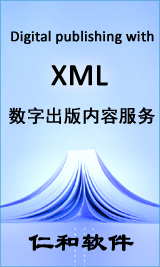F.M.Yang
,
X.F.Sun
,
H.R.Guan
,
Z.Q.Hu
金属学报(英文版)
The dynamic strain aging behavior during tensile tests of K40S alloy has been investigated in the temperature range of 25-1100℃ with the strain rate range from 10^-4 to 10^-3s^-1. The results show that four different types of serration, identified as A,B, C and E type serration were observed in the temperature range of 300-500℃. The strain exponents for onset of the serrated flow were calculated as 1.21, 2. 79 and 1.61,and the activation energies as 121, 40 and 67kJ/mol for E, B and C type serration respectively. The main mechanism for dynamic strain aging discussed in light of the strain exponent and the activation energy.
关键词:
dynamic strain aging
,
null
,
null
M.H.Li
,
X.F.Sun
,
Z.Y.Zhang
金属学报(英文版)
A bond coat for thermal barrier coating (TBC), NiCrAlY coating, is subjected to vac-uum heat treatment in order to remove internal stress before ceramic top coat is de-posited. The effect of vacuum heat treatment on the oxidation behavior of the sputteredNiCrAlY coating has been investigated. The as-sputtered NiCrAlY coating consists ofγ-Ni and β-NiAl phases. After vacuum heat treatment, the sputtered NiCrAlY coatingmainly consists of γ-Ni3Al, β-NiAl, γ-Ni, and trace of α-Al2O3 phases. The isother-mal oxidation of sputtered NiCrAlY coating with and without vacuum heat treatmenthas been performed at 1000C. It is shown that α-Al2O3 formed during vacuum heattreatment acts as nuclei for the formation of α-Al2O3, and the protective α-Al2O3scale is formed more rapidly on the vacuum heat treated NiCrAlY coating than thatformed on the untreated coating. Also the α-Al2O3 scale has a better adherence to thevacuum heat treated NiCrAlY coating. Therefore the vacuum heat treatment improvesthe oxidation resistance of sputtered NiCrAlY coating.
关键词:
vacuum heat treatment
,
null
,
null
Superconductor Science & Technology
It is shown that the superconductivity in Ce(1-x)Gd(x)FeAsO(0.84)F(0.16) compounds can be modulated by internal (chemical) pressure. The internal pressure is induced by Gd substitution for Ce in CeFeAsO(0.84)F(0.16), which compresses the crystal lattice. The temperature dependences of resistivity and magnetization show that the superconducting-transition temperature T(c) is enhanced from 40 K for CeFeAsO(0.84)F(0.16) to 47.5 K for Ce(0.6)Gd(0.4)FeAsO(0.84)F(0.16). The increase and subsequent decrease of Tc upon application of external pressure, as observed previously in LaFeAsO(0.89)F(0.11), is entirely confirmed by the modulation of Tc of the Ce(1-x)Gd(x)FeAsO(0.84)F(0.16) superconductors by internal pressure.
关键词:
layered quaternary compound;43 k;iron
Journal of Applied Physics
Structural parameters have a critical impact on superconductivity in iron-based oxypnictide superconductors. Structural evolution study was performed on Ce(1-x)Gd(x)FeAsO(0.84)F(0.16) superconductors by the analysis of the x-ray diffraction patterns with Rietveld refinement. Substitution of Gd for Ce generates internal pressure that compresses the crystal lattice. The contraction of the c axis is also indicated by the reduction of Ce/Gd-As and Ce/Gd-O/F distances, while there is a slight increase in the As-Fe-As block size, which is compensated by a large reduction in the Ce/Gd-O/F-Ce/Gd block with Gd substitution. The diagonal Fe-As-Fe angle for Ce(0.6)Gd(0.4)FeAsO(0.84)F(0.16), with the highest T(c) among Ce(1-x)Gd(x)FeAsO(0.84)F(0.16) compounds, is 111.13 degrees. It is close to the ideal value of 109.47 degrees for the perfect FeAs tetrahedron, which is situated in the region of Fe-As-Fe bond angles where RFeAsO compounds tend to have the highest T(c). (C) 2011 American Institute of Physics. [doi:10.1063/1.3565408]
关键词:
layered quaternary compound;high-temperature superconductivity
崔雅静
,
陈永亮
,
杨烨
,
王雅真
,
张勇
,
赵勇
低温物理学报
通过先制备一种纳米尺寸的GdF_3作为GdFeAsO_(1-x)F_x样品中F的反应原料,在相对较低的温度(1120℃)下成功制备出一系列GdFeAsO_(1-x)F_x(x=0,0.05,0.1,0.15,0.2,0.25)多晶样品.X射线衍射结果表明,超导样品属四方ZrCuSiAs-type结构,晶格参数随着掺F量的增加而减小.扫描电子显微镜测试结果表明,样品具有片层状晶体形貌特征.当掺F量x=0.1时,样品表现出超导电性,超导转变温度为22K,随着掺F量的增多,超导转变温度升高.和其他制备方法相比,这种制备方法更有利于F的掺入,而且可有效减少样品中杂质相的含量.
关键词:
铁基超导体
,
ZrCuSiAs结构
魏惠元
稀有金属材料与工程
介绍了可适用钛金属0.4 m~1.2 m不同焦距、微粒胶片X射线照相用的KUPTF新型曝光曲线的制作原理及方法.试验结果表明,新型曝光曲线具有制作简便、经济实用、可兼顾底片象质和拍片效率的优点,是钛制压力容器现场变焦距透照选取准确管电压值的理想工具.
关键词:
钛
,
X射线照相
,
KUPTF
,
曝光曲线
梁庆华
,
史瑶
,
马望京
,
杨新民
,
李智
影像科学与光化学
doi:10.7517/j.issn.1674-0475.2014.02.150
X射线成像板的成像性能很大程度上取决于存储荧光粉材料的物理化学性能.本文采用水热制备方法,以BaCl2、EuBr2、NaBF4为反应原料,以乙二胺四乙酸(EDTA)为辅助剂制备了Ba7 F12 Cl2:Eu2+荧光粉.利用X射线粉末衍射(XRD)、场发射扫描电镜(SEM)、X射线能量损失谱(EDS)、拉曼光谱(Raman)、荧光光谱(PL)等对制备的Ba7 F12 Cl2:Eu2+进行了表征.根据反应条件对产物的影响,初步提出了产物的形成过程.结果表明:反应温度及EDTA用量对产物物相和形貌有显著影响;制备的Ba7 F12 C12:Eu2+荧光粉有较好的发光性能.
关键词:
荧光粉
,
水热合成
,
Ba7F12Cl2
,
成像板
马晶
,
张骁勇
,
程时遐
,
高惠临
材料导报
采用热模拟、力学性能测试和材料显微分析等试验技术,对X80管线钢在临界区加速冷却工艺下的组织性能变化规律进行了研究.结果表明,通过临界区加速冷却,X80管线钢可获得贝氏体+铁素体(B+F)双相组织.随着始冷温度的上升,试验钢的贝氏体含量增加,铁索体含量降低,导致屈服强度增高,塑性降低.当始冷温度为840℃时,显微组织以细小、多位向分布的贝氏体为主,辅以高密度位错的多边形铁素体.这种(B+F)双相组织使得试验钢的屈强比为0.80、均匀伸长率为10.0%、形变强化指数为0.12,满足了大变形管线钢的技术要求.
关键词:
X80大变形管线钢
,
临界区加速冷却
,
始冷温度






